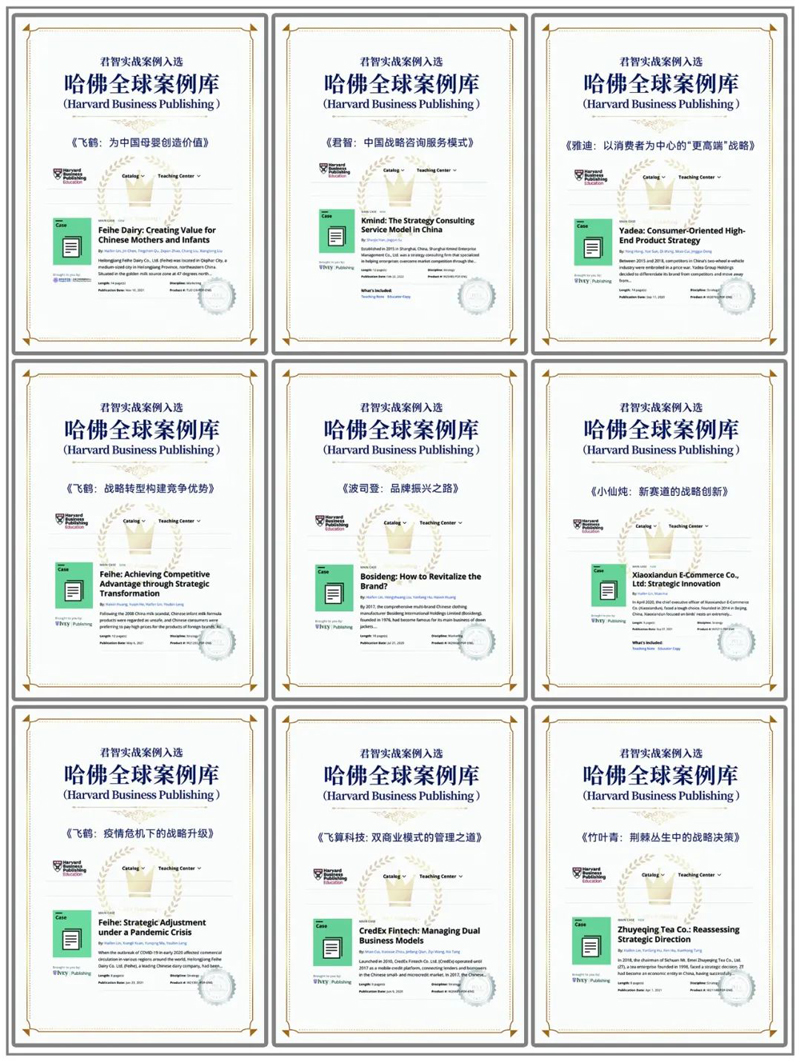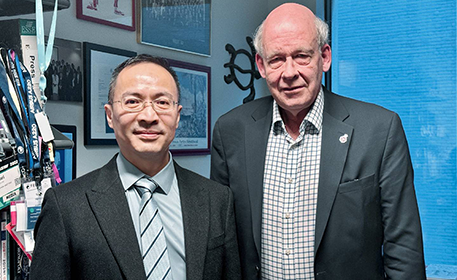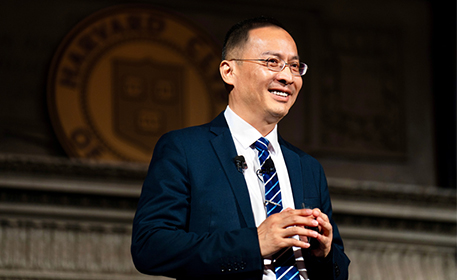Nine of Kmind’s case studies (notably FIRMUS, Bosideng, Yadea, Xiaoxiandun, CalEx Tech, and Zhuyeqing Tea) are included in the case database of Harvard Business Publishing (HBP) Education, and have been since 2020. Classic examples of Chinese corporate strategy have captured the attention of top business schools across the world. Kmind has emerged as the forefront of this movement, being the Chinese consulting firm with the largest number of cases published by HBP Education out of all Chinese firms.

1. HBP Education: a benchmark of international case study
Founded in 1908, Harvard Business School was the first business school in the world to establish a case-based approach to teaching. They spawned the HBP Education case database, a now leading global authority on business research and education. 80% of cases used by the world's top business schools are sourced from HBP Education. As a benchmark for international case studies, the database annually selects successful cases sourced from high-profile companies all across the globe for the sake of education and research, recommending them to MBA students and professors worldwide.
Harvard Business School maintains its case-based approach to business education so that students can immerse themselves in real-world business administration challenges, and can learn to navigate a variety of complexities.
To ensure the validity of the discussion, Harvard professors choose the most typical business cases. Being included in the HBP case database, therefore, means that the persons involved in the case have created a business phenomenon worth noticing.
Owing to the cultural differences between Chinese and Western business practices, the HBP Education program had insofar focused on European and American firms to build up their case arsenal. It was not until 1998 that a Chinese firm - Haier Group - entered its pool of cases.
Since the start of the 21st century, business has been booming in China, with local firms garnering more attention from the rest of the world. These firm’s successes have led them to frequent the global business spotlight, and have caught the eye of experts and scholars alike determined to figure out what exactly makes their success tick.
2. Kmind blends Eastern wisdom with Western theory – fusing “aptness” and “rationalism”
By integrating Western business theories with Eastern wisdom, and researching hundreds of large-scale companies, Kmind has developed a workshop specializing in competitive strategy, supporting clients in achieving high-quality development and elevate their entire industry.
"Eastern culture and wisdom, Western culture and wisdom, both possess their unique storied histories, beauty, and merits,” said Xie Weishan, Kmind’s President, strongly emphasizing his company’s thorough understanding of the two worlds’ culture and philosophy.
Originating from ancient Greece, Western wisdom excels in the "quantitative", leading to the importance of statistics in the West. China has reaped the benefits of Western science, technology, logic, philosophy, and analysis. The robustness of Western theory is a crucial factor of China’s rapid modernization. And while Kmind saw the strengths of Western theory, we also simultaneously value the merit and power of Eastern wisdom.
"I think the Eastern Wisdom is currently widely underappreciated. So what exactly are the advantages of Eastern wisdom? We excel at ‘striking a balance’ – valuing intangibles and the qualitative. Quantitative excellence can be understood as taking those that can be streamlined and standardized, and further optimizing them. Western theories are the crux of Kmind’s ability to drive standardization in the service sector, boost product iteration and promote sound corporate management. The methodology to ‘strike a balance’ however is the sole domain of Eastern culture,” explained Weishan.
"The moment opportune, the location prime, the materials of quality, and the craftsman skilled strike the balance in manufacturing." According to Weishan, the above is a profound interpretation of the concept of "aptness", Weishan. "Aptness" is more about the application level: emphasizing both the process and the ability to change. It is by applying this wisdom to its strategy consulting, that enabled Kmind to make the most of any circumstance and opportunities as they arise, and ultimately create results that amazed HBP Education judges.
Beyond Kmind’s 9 cases in the HBP Education program, a case titled "Kmind: The Strategy Consulting Service Model in China" was officially released by internationally renowned IVEY Publishing in March of this year, and was simultaneously included in the HBP Education case database, published worldwide for case study purposes.
The simultaneous inclusion of both Kmind’s clients and their own success cases in the HBP Education program, marks Kmind’s continued recognition by top academic institutions both domestically and internationally. Among over 160 submissions sent in from over 20 countries, Kmind was awarded the 2019 Silver Constantinus Award 2019, granted by the International Council of Management Consulting Institutes (ICMCI) upon their first submission. The following year, Kmind was honored the second prize in the 27th National Corporate Management Modernization and Innovation Achievements Awards. In 2021, the company was officially certified as a ‘CMC-FIRM’. "We are honored that 9 of Kmind’s cases have been included in HBP Education case library and have been made available to business schools around the world. Kmind's consulting model and solutions have been fully validated in the vast, promising Chinese market, and we firmly believe they can also be effectively applied to economies around the world," said Weishan.






